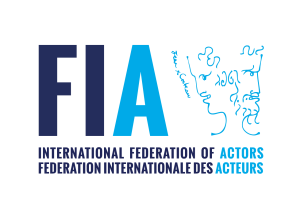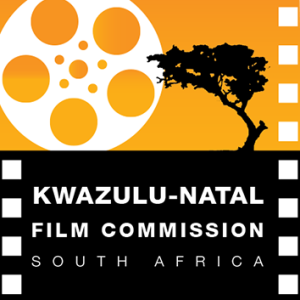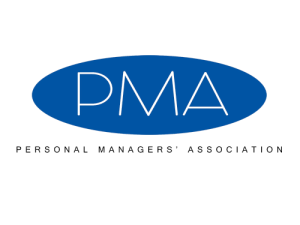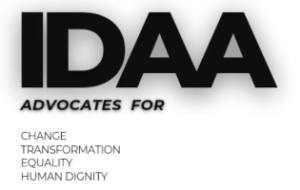Strategic Affiliations
Building Bridges and Driving Change
SAGA stands proudly as a member of influential umbrella bodies on both the national and international stage. Our strong affiliations keep us at the forefront of industry developments and enable us to drive policy changes through meaningful contributions within these forums. In the spirit of unity and shared objectives we have also forged working relationships adopting MOUs with like-minded organisations on the ground to create a network of invaluable friends.
The South African Screen Federation (SASFED)
SAGA is a member of SASFED
The South African Screen Federation (SASFED) is the national federation of independent film, television and audiovisual content industry organisations in South Africa. Founded in 2006 in response to Government’s call for the independent production sector to speak with a united voice, SASFED represents a broad spectrum of industry players, via affiliates representing several thousand individual members and hundreds of member companies employing up to a hundred staff.
SASFED has signed a Terms of Engagement with the NFVF, which binds parties to quarterly stakeholder meetings to engage on industry strategy, policy and interventions.
As of 2012, SASFED has active representation on the premier South African Film and Television Awards (SAFTAS) Board, where it holds two permanent seats, and two alternate seats.
SASFED is also the Working Group and Coordination Committee member of SOS: The Supporting Public Broadcasting Coalition, an advocacy group driving industry oversight and dialogue on critical policy, legislation, regulatory and management matters pertaining to the local broadcast sector, and in particular, the public broadcaster – the South African Broadcasting Corporation (SABC).
Its current membership of eight independent film and television production industry organisations, associations and guilds, are in ultimate control of SASFED via their allocated Council Member, who make up what is known as the SASFED Council. The Council also meets regularly to discuss industry issues between the organisations.
The Chairperson, Vice-Chairperson and Treasurer are elected annually from the Council in terms of the SASFED Constitution, which guides that individuals may not join SASFED directly, but only via bona fide industry bodies.
SASFED is opposed to all forms of discrimination and oppression and stands for a united, non-racial, non-sexist and democratic South Africa. In particular, the federation believes that for the film and television industry to thoroughly fulfil its economic, social and cultural potential in society, it has to overcome the racial inequalities created under apartheid.
To this end, SASFED encourages all members to adopt policies and implement programmes ensuring deliberate access by historically disadvantaged Black South Africans at all levels of their organisations and industry sectors.
Current full SASFED member organisations:
- Animation South Africa (ASA)
- The Documentary Filmmakers’ Association (DFA)
- The Independent Black Filmmakers Collective (IBFC)
- Independent Colourist Guild of South Africa (ICGSA)
- Independent Directors Association Africa (IDAA)
- The Independent Producers’ Organisation (IPO)
- The Personal Managers’ Association (PMA)
- South African Guild of Actors (SAGA)
- South African Guild of Editors (SAGE)
- Sisters Working In Film And Television (SWIFT)
- Writers’ Guild of South Africa (WGSA)
SASFED therefore proudly represents the collective core of South Africa’s creative sector, for the independent film and television industries.
Theatre and Dance Alliance (TADA)
SAGA is a member of TADA
“WHO WE ARE
The THEATRE AND DANCE ALLIANCE is a coalition of organisations, institutions, festivals and companies that operate, and individuals who make a significant part of their livelihoods within the South African dance and theatre sector.
WHAT WE DO
Our purpose is to advance and defend the interests of the dance and theatre sector as a whole and of the individuals active within it.
OUR VISION
We envision a just society in which all citizens enjoy the fundamental right ‘to participate in the cultural life of the community and to enjoy the arts’ (Article 27 of the Universal Declaration of Human Rights), and in which the dignity, value and rights of creative workers are recognised and upheld.
OUR PRINCIPLES
THEATRE AND DANCE ALLIANCE is committed to the following principles and requires its members to subscribe to such principles:
Anti-discrimination: TADA will not discriminate against anyone on the basis of colour, ethnicity, gender, class, sexual orientation, age, disability and country of origin.
Non-partisanship and political independence: TADA will not affiliate or align with any political party, while it will engage with all parties that influence policy regarding theatre and dance in the pursuit of its aims.
Unity: TADA will seek to unify the dance and theatre sector across historical, racial, geographical, cultural and other divides, but not compromise its principles in doing so.
Ethical leadership: TADA will promote ethical leadership and will not tolerate corruption, dishonesty and behaviour that places individual self-enrichment above the interests of members or the broader sector, with leaders required to declare their interests and recusing themselves when decisions have to be made about issues in which they have a direct interest.
Anti-gender-based violence: TADA will actively promote gender equality and work towards the eradication of violence against women within the dance and theatre sector and within our society as a whole.
Transparency and accountability: TADA will conduct its affairs transparently, keeping its members informed and conducting itself in a manner that is accountable to its members, even as it seeks to hold accountable those who are responsible for policy and funding of the dance and theatre sector.
Democratic: TADA will promote and act according to democratic principles, with the leadership accountable to the members who elected them and uphold transparency and accountability as above.” — tada.org.za/about
The International Federation of Actors (FIA)
SAGA is a member of FIA
The International Federation of Actors (FIA) is a global federation of performers’ trade unions, guilds and professional associations. Founded in 1952, it represents several hundreds of thousands of performers with some 90 member organisations in more than 60 countries around the world.
FIA’s main purpose is to voice the professional interests of actors (in film, television, radio, digital media, theatre and live performance), broadcast professionals, dancers, singers, variety and circus artists and others.
After many years in isolation, local actors can look forward to global assistance when it comes to protection of artists’ rights, procuring equitable deals on international productions, and the use of their images abroad.
South African Guild of Actors (SAGA) board member, Carlynn de Waal-Smit represented the Guild at the 20th congress of the International Federation of Actors (FIA) held in Toronto in November 2012 and was assured of full support in, among other things, our on-going battle to get equitable deals for local actors working on international productions.
“Many overseas companies use South African locations because it is much cheaper to film here – not only is the weather great, but local actors can be hired for a fraction of what they would cost in, say, USA or Europe. The down side of this, is that our performers are often exploited badly, given sub-standard accommodation and per-diems, and are left with little recourse to claiming residuals or repeat broadcast fees. A notable exception was the production of ‘Invictus’, which gave local actors the same daily expense allowance and hotel accommodation as the leading international players”, she said.
One of the main talking points at the FIA congress was the signing of the Beijing Treaty on Audio-visual Performances, which was adopted consensually by the Member States present at the WIPO Diplomatic Conference in Beijing in June 2012.
For the first time in history, and at an international level, audio-visual performers have been granted meaningful worldwide economic and moral rights.
Members of FIA, from all parts of the globe, have indicated their full support and willingness to work closely with SAGA in drawing up internationally acceptable contracts. They will also provide advice and support as SAGA lobbies to revise local legislation. The SA Performers Protection Act of 1967, for example, is hopelessly outdated, sidelining freelance actors while catering mainly for musicians and the broadcast of their work. The FIA Congress further resolved to work toward assuring performing artists of access to social protection and decent working conditions. “In South Africa, we don’t get much social protection besides UIF, which we can’t claim from anyway”, said Carlynn. As Independent Contractors, freelance actors are denied access to those safety-nets afforded full-time employees: Unemployment Insurance and Workman’s Compensation.
There is a lot of work to do, but knowing the international acting community is with us, will help spur us on in the never-ending battle for the respect and compensation our members deserve. While we don’t necessarily expect local actors to be paid the same as international stars, there is much room for improvement. There is a definite need for a remuneration structure that ensures our actors are paid decently without undermining the attraction of South Africa as a filming location.
Actor Spaces
SAGA has signed an MOU with Actor Spaces
“Actor spaces is a creative space and digital publication that celebrates excellence in the African Film, Television and Theatre industry. They share interviews and anecdotes with various artists as a way to document and archiving the stories and lives of African Actors.” — 44stanley.co.za/actor-spaces
The KwaZulu-Natal Film Commission (KZNFC)
SAGA has signed an MOU with KZNFC
The KwaZulu-Natal Film Commission was established in accordance with a provincial Act passed in 2010. The KwaZulu-Natal Film Commission is set to begin fulfilling its mandate to make the province a film production centre. In 2014/2015, the KZNFC developed systems and policies to support and attract national and international role-players in the film industry.
The KZNFC derives its mandate from the KZN Film Act No. 3 of 2010, which established the KZNFC and has as part of its objectives:
- To promote and market the province as a global destination for film production
- To develop, promote and market, locally and internationally, the film industry in the province
- To facilitate investment in the film industry in the province
- To provide and encourage the provision of opportunities for persons, especially from disadvantaged communities, to enter and participate in the film industry in the province
- To address historical imbalances in the infrastructure and in the distribution of skills and resources in the film industry in the province
- To contribute to an enabling environment for job creation in the film industry in the province
In interpreting its mandate, the team at the commission set about determining objectives that align with the mandate of the act, including, among others:
- To promote and market KwaZulu-Natal as a choice film destination
- To secure strategic investment through facilitation and promotion of film projects into the film industry in KwaZulu-Natal;
- To implement interventions that drive transformation, diversification and service excellence in the film industry
- To create opportunities in film production and distribution for Previously Disadvantaged Individuals taking into account South Africa’s historical past
- To develop in-house capabilities and skills in order to provide world class quality service to clients
Emanating from these objectives, programmes were developed to ensure their implementation and, in turn, the mandate set by the KwaZulu-Natal Film Commission Act. The programmes that the film commission will embark upon will be:
- An intervention in the area of skills development, which will include an Internship Programme for film school graduates, both within the institution and the industry in the province as a whole. The skills development programme will also have a Women and Youth incubation programme. This will be to encourage women entrants into the industry and create an environment where skills and expertise in the industry can be nurtured. The youth incubation programme will have the same aim as that of the women’s programme and will provide an entry mechanism for young filmmakers into the industry. A final intervention in the area of skills development is a Bursary Programme for students to study film and begin to develop a career in the film industry.
- A Small Medium and Micro Enterprises (SMME) development programme, through the incubation of emerging film companies. This programme will nurture and strengthen SMME companies, with the aim of transforming them into film companies that will create jobs and contribute towards the growth of the economy.
- Familiarisation tours that will bring film producers and film companies from around the country and the world to inspect the province’s locations and facilities and to promote the province as a location for film.
The South African Performing Artists Management Association (SAPAMA)
SAGA has signed an MOU with SAPAMA
“South African Performing Artists Managers Association is a voluntary association for agents who represent actors and performers in the film and advertising industry with the aim to encourage best practices from its members by improving inter-agent communication and between agents and the industry.” — sapama.co.za/about-us
Sisters Working in Film & Television (SWIFT)
SAGA has signed an MOU with SWIFT
“Sisters Working in Film & Television (SWIFT) is a non-profit organisation committed to championing empowerment and access to equal opportunities for women in a previously male-dominated industry, by advocating for change from the historical imbalances and a legacy that discriminated against women in South Africa. SWIFT advocates for gender parity and intersectionality, across the audio-visual sector and content production ecosystem.” — swiftsa.org.za/about-us
The Personal Managers' Accosiation (PMA)
SAGA has signed an MOU with PMA
“Striving to maintain standards within the entertainment industry, pertaining to professional actors.” — facebook.com/thepmasa
Independent Directors Association Africa (IDAA)
SAGA has signed an MOU with IDAA
“We are a non-profit organization dedicated to advancing the rights and opportunities of film and TV directors and DOPs in South Africa.
Our objectives are to implement policies and programs for the transformation, equality, economic, cultural, and educational development and growth of film and TV directors and DOPs as well as below the line crew members in South Africa and Africa at large, regardless of gender and race.
To commit on safeguarding the craft, artistry and the creative and economic rights of the directors and DOP’s as essential component of the diversity of their work in South Africa and beyond. To also advocate for below the line crew members and production personnels.
To advocate for Change, Transformation, Equality, human dignity and fair treatment regardless of gender or race for every crew member and the creative rights of our directors and DOP’s as priority and below the line crew members.” — idaafrica.org/about/
Writers Guild of South Africa (WGSA)
SAGA has signed an MOU with WGSA
“The Writers Guild of South Africa (WGSA) is a Non-Profit Organisation (NPO) and a Public Benefit Organisation (PBO).
Our mission is to protect, empower and develop performance writers. The WGSA operates within the local film, television, radio, stage, animation, and new media (internet – mobile and digital distribution, and gaming).
Our vision is to become, “a self-sustainable and united guild representing the collective interests of ALL performance writers.”
Our mandate is governed by a constitution and a council. All activities are executed by volunteer council members and a part-time Executive Officer and Administrator.” — writersguildsa.org/about-us
The Southern African Freelancers' Association (SAFREA)
SAGA has signed an MOU with SAFREA
“The Southern African Freelancers’ Association champions freelance workers in the media and communications fields. For more information on joining Safrea, visit our pages on member benefits, membership types and rates, and the application process to become part of our 500-strong community. To work with our members, visit our Freelancer Database.
Safrea is a professional association of freelance workers in the media and communications industries. Members are writers, photographers, editors, social media managers, proofreaders, graphic designers, illustrators, researchers, translators and other experts in communication, who offer a broad range of skills and specialities.
Founded in 1999, Safrea promotes the interests of freelance media specialists, campaigns to improve their professional standing and to make working as a freelancer more rewarding.” — safrea.co.za/about-safrea











